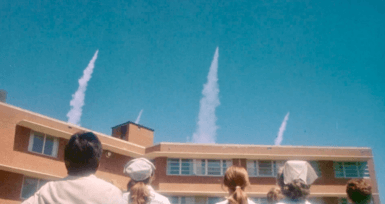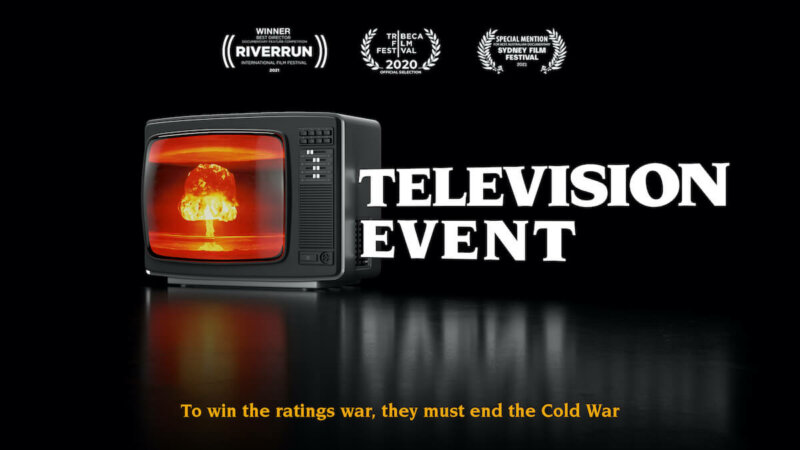New doc offers a riveting behind-the-scenes look at the 1983 nuclear-attack TV movie blockbuster that changed the world

A screenshot from the blockbuster 1983 ABC-TV movie “The Day After,” about the ravages of nuclear war.

“Any social system that has created and maintained a Doomsday Machine and has put a trigger to it, including first use of nuclear weapons, is in core aspects mad. Ours is such a system. We are in the grip of institutionalized madness.”
― Daniel Ellsberg, The Doomsday Machine: Confessions of a Nuclear War Planner
With fears of nuclear war on the rise,¹ it might be useful to draw some lessons from how Americans responded to a similar moment of peril at the height of the Cold War.
In November of 1983, at a time when the U.S. and the Soviet Union were locked in an escalating arms race with no end in sight, the American people were so on edge about the possibility of nuclear war that an ABC TV movie about an apocalyptic nuclear strike on Middle America drew an audience that eclipsed Super Bowl ratings and put pressure on U.S. political leaders to come back to the negotiating table with the Soviets.
“The Day After,” despite its shockingly graphic depiction of the horrors of nuclear annihilation, was seen on broadcast television in primetime by a mind-boggling 100 million Americans, making it the most-watched TV movie in U.S. history.
For a fascinating account of the making of this remarkable TV movie, and the profound positive impact it had on the American people and U.S. officials at the time, don’t miss award-winning filmmaker Jeff Daniels’s riveting documentary Television Event.
Television Event is now streaming on Kanopy through universities and public libraries, and is available for educational use through MEF on other digital platforms.
At once darkly funny and deadly serious, Television Event is an invaluable educational tool for understanding the accelerating risks of nuclear war and envisioning ways to restore sanity in foreign policy circles. An ideal resource for courses that deal with American history, militarism and war, U.S. politics, political communication, cultural studies, media studies, and media production.
1. “A moment of historic danger: It is still 90 seconds to midnight,” Bulletin of Atomic Scientists, January 23, 2024.

An absolutely riveting, highly entertaining and important story of the 1983 ABC TV movie, The Day After. … This documentary is not only a remarkable, often oddly funny, look at the broadcast network machinations at the time, but also a game-changing show business event that directly affected then-President Ronald Reagan and his whole attitude towards the possibility of a nuclear holocaust.”
—Deadline Hollywood
“A blast. Witty, moving, and engaging … Taps into the heightened anxiety over U.S.-Soviet tensions, the growing nuclear stockpiles that went with them, and the response of the Reagan administration to The Day After’s anti-nukes message.”
—The Hollywood Reporter
“A riveting study of a landmark film. … The documentary examines the influence of The Day After, with Reagan screening it at Camp David, profoundly shaken by the viewing experience, helping to change his vision for a catastrophic arms race with the Soviet Union. And there’s the national conversation the endeavor created, unthinkable in this day and age, inspiring global awareness of a horrific issue. Television Event is a crisply made reminder of such an incredible feat of dramatic power and programming bravery.”
—Blu-ray.com
“As entertaining as it is profound … a gem of an historical document. Amazing to think, in our current age of social media, that TV mattered in such a way. But it did, and thanks to Daniels and his marvelous Television Event, we see the evidence. Lights, camera, boom!”
—Hammer to Nail

